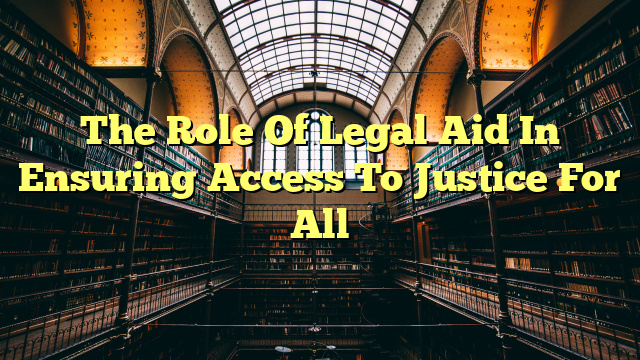Table of Contents
- Why is access to the legal system important?
- What does it mean to provide equal access of justice?
- What is the purpose of law and justice?
- In which landmark legal case the Supreme Court held the right to legal aid as a fundamental right?
It is a common adage that justice should be available for all without any discrimination. This is the basic principle of the rule of law. Access to justice is a fundamental right of every citizen and it should be ensured without any hindrance for all. This is where legal aid comes in. Legal aid is the provision of assistance to people who are unable to affords legal representation and access to the court system. Legal aid ensures that justice is available to everyone, regardless of their financial means.
Why is access to the legal system important?
Access to the legal system is important because it allows individuals to assert their rights, resolve disputes and enforce their legal rights. It also serves to protect individual’s rights and liberties. Access to justice is especially important for those who are economically weak and vulnerable, and unable to afford legal representation. Without legal aid, the court system will be exclusive to those with the financial means to pay for legal representation and advice. This would create an unfair and unequal society that is not conducive to justice.
What does it mean to provide equal access of justice?
Providing equal access to justice means that everyone has the same opportunities to receive legal aid, regardless of their socioeconomic standing. It means that no one should be discriminated against on the basis of their financial means and everyone should be able to access the court system and resolve disputes. Providing equal access to justice also involves making the court system more accessible for everyone, including those who do not speak English and those who are disabled or otherwise disadvantaged.
What is the purpose of law and justice?
The purpose of law and justice is to ensure that citizens are treated fairly and equally, and to protect their rights and liberties. It is also to provide a fair and impartial system of adjudication, and to ensure that citizens can access justice without fear of discrimination or prejudice. The purpose of law and justice is to ensure that everyone is treated with respect and dignity, and that everyone has the same opportunities to access justice.
In which landmark legal case the Supreme Court held the right to legal aid as a fundamental right?
In the landmark case of M.H. Hoskot v. State of Maharashtra, the Supreme Court held that the right to legal aid is a fundamental right. The court held that it is the duty of the state to provide free legal aid to those who are unable to afford it. This landmark legal case set the precedent that legal aid is essential in ensuring access to justice for all.
Legal aid is an essential part of ensuring access to justice for all. It is a right enshrined in the Constitution, and it is the duty of the government to ensure that everyone has an equal opportunity to access the court system and receive justice. Legal aid plays an important role in ensuring that justice is available for all, regardless of financial means.


Legal aid is essential in providing equal access to justice for all. Without it, there would be a significant disparity between those who can afford justice and those who cannot.